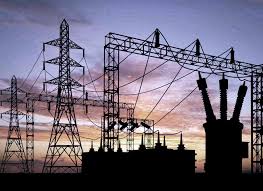
Electrical Engineering
Power System Analysis
| Date | Venues | Fees | Book your seat |
|---|---|---|---|
| 26 Jan - 30 Jan 2025 | Kuala Lumpur | $ 3300 | Conducted Download Brochure |
| 09 Feb - 13 Feb 2025 | Bahrain | $ 2900 | Conducted Download Brochure |
| 16 Feb - 20 Feb 2025 | Cairo | $ 2900 | Conducted Download Brochure |
| 02 Mar - 06 Mar 2025 | Kuala Lumpur | $ 3300 | Conducted Download Brochure |
| 16 Mar - 20 Mar 2025 | Bahrain | $ 2900 | Conducted Download Brochure |
| 23 Mar - 27 Mar 2025 | Istanbul | $ 3300 | Conducted Download Brochure |
| 23 Mar - 27 Mar 2025 | Cairo | $ 2900 | Conducted Download Brochure |
| 30 Mar - 03 Apr 2025 | Dubai | $ 2900 | Conducted Download Brochure |
| 27 Apr - 01 May 2025 | Istanbul | $ 3300 | Register Now Download Brochure |
| 04 May - 08 May 2025 | Dubai | $ 2900 | Register Now Download Brochure |
| 01 Jun - 05 Jun 2025 | Sharm El-Sheikh | $ 2900 | Register Now Download Brochure |
| 27 Jul - 31 Jul 2025 | Salalah | $ 2900 | Register Now Download Brochure |
| 17 Aug - 21 Aug 2025 | London | $ 5500 | Register Now Download Brochure |
| 17 Aug - 21 Aug 2025 | London | $ 5500 | Register Now Download Brochure |
| 14 Dec - 18 Dec 2025 | Bahrain | $ 2900 | Register Now Download Brochure |
| 14 Dec - 18 Dec 2025 | Cairo | $ 2900 | Register Now Download Brochure |
| 21 Dec - 25 Dec 2025 | Istanbul | $ 3300 | Register Now Download Brochure |
| 21 Dec - 25 Dec 2025 | Kuala Lumpur | $ 3300 | Register Now Download Brochure |
| 21 Dec - 25 Dec 2025 | Dubai | $ 2900 | Register Now Download Brochure |
